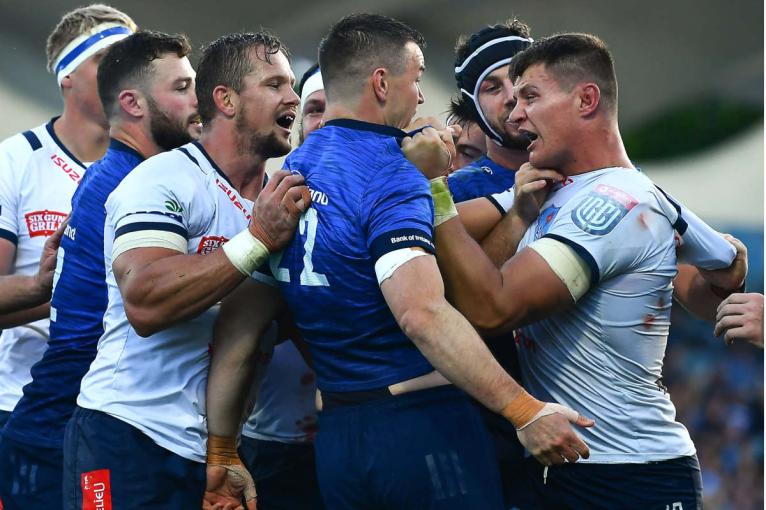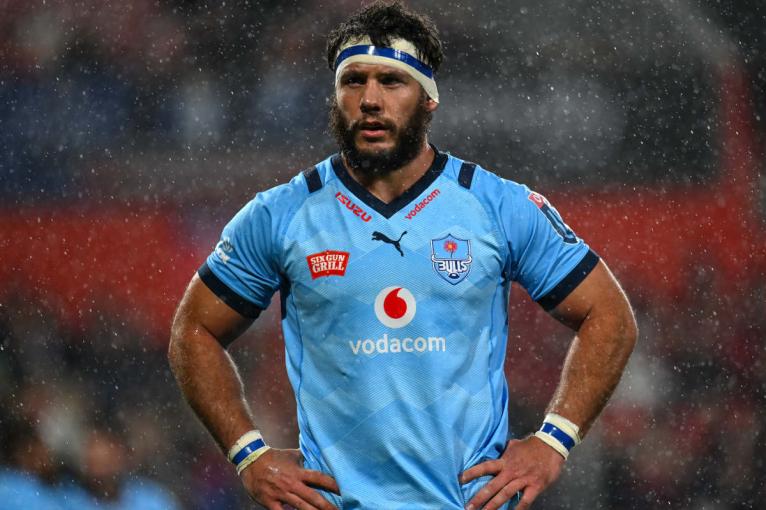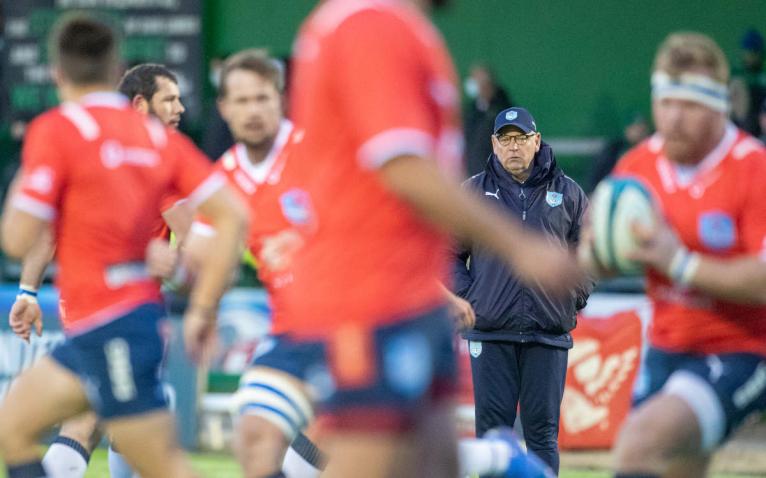Every October, around the start of autumn in the northern hemisphere, millions of monarch butterflies migrate from their summer breeding grounds near the border of the United States and Canada and travel close to 3,000 miles over two months to Mexico.
Along the way they reach the vast Lake Superior. But rather than fly over the body of water, they go around it. Scientists have yet to agree on why this detour takes place with some proposing that the insects are circumnavigating an ancient volcanic mountain that has long since eroded.
In the animal kingdom this inherited behaviour passed on over countless generations is loosely defined as instinct. In the sports world we might describe this as institutional memory. Players and coaches may come and go. Tactics evolve and new rivals emerge. But an ingrained culture endures. And though club rugby does not stretch as far back as the first monarch butterfly migration, there are certain teams that carry particular traits that compel them to glory.
The Bulls from Pretoria and Leinster from Dublin are two of these teams. With eight Currie Cups in the professional era, and three Super Rugby titles, the Bulls are by far the most successful union from South Africa of the past 30 years. Similarly, Leinster, with eight domestic championships and four European crowns, have been the flag bearers of Irish rugby for more than two decades. On Saturday, they meet in the United Rugby Championship semi-final in the South African executive capital.

“These teams have an aura,” says the Bulls’ co-captain, Marcell Coetzee, who joined the club in 2021 after six years with the Irish province Ulster. “When you join a team like this, you automatically feel a responsibility to uphold a standard. You want to contribute to a legacy and leave your own mark. I’d agree with the premise. Some teams are just special.”
Coetzee experienced this for himself on his debut for the Bulls. In the covid-impaced Rainbow Pro14 Cup, against their bitter rivals the Stormers, the Bulls were 0-10 down at Loftus. When Duane Vermeulen limped off with an early injury, the captaincy passed to Coetzee.
“I hardly knew my teammates and I didn’t quite know all our systems yet, but I felt this energy that what the badge represented was, how do I say this, that it was bigger than me, that it meant something,” Coetzee remembers. “All I had to do was tap into that aura and relay that to the guys. We rallied and eventually won the game [31-27]. That was proof that we, as the Bulls, would never lie down.”
I think it’s fair to say that there is a unique spirit at the Bulls. The whole of Pretoria would be confident. Almost like they expected the Bulls to win. They wouldn’t accept anything else. I’m not sure other cities are as ruthless.
Ruan Nortje
Of course, star quality helps with this self-fulfilling narrative. The Bulls’ dynastic run in Super Rugby started in 2007 when Bryan Habana scythed through the Sharks defence in the final to score a last-minute, title-clinching try. Was that a consequence of a collective mindset or the fast twitch muscle fibres of one of rugby’s greatest ever try-scorers? Did the Bulls collect a glut of trophies thanks to an indomitable spirit or because they had Victor Matfield, Bakkies Botha, Fourie du Preez and Pierre Spies at their disposal?
“I think it’s fair to say that there is a unique spirit at the Bulls,” says the lock Ruan Nortje, who was a regular in the Loftus Versfeld stands when the aforementioned legends ruled Super Rugby with an iron grip. “You could see it when they played. There was this belief that was real. You could feel it. And not just during the game. The whole of Pretoria would be confident. Almost like they expected the Bulls to win. They wouldn’t accept anything else. I’m not sure other cities are as ruthless.”
WE CAN’T WAIT for tomorrow! 🥹💙🇿🇦#FillUpLoftus, BUY your tickets NOW: https://t.co/gwQNRqgeEu #HomeAdvantage pic.twitter.com/C1m5V2cIUf
— Official Blue Bulls (@BlueBullsRugby) June 14, 2024
Nortje, who was born and raised in Pretoria and has been on the Bulls’ books since he joined the academy straight out of high school in 2016, says he feels “embarrassed” and “a little intimidated” when showing his face in public after a loss. “People look at you and you think, ‘I’ve let these guys down’ which is horrible,” he says. “The whole city looks at you. You’re representing them. You’re representing what came before.
“I think where we are also plays a role. Pretoria is a place filled with hard working people who work from six in the morning to six at night. There’s a history of hard work and pride in hard work. When you put on that blue jersey you’re playing for a place, not just a team.”
Opposition players know when they’re facing in Pretoria. Loftus is a madhouse of noise and colour and braai smoke. “It’s hectic when you’re playing against them there,” explains Nizaam Carr, the Springbok flank who started his professional career down in the Western Cape with the Stormers but moved north to join his home union’s advisories in 2020.
“I never imagined I’d ever play for the Bulls,” Carr admits. “They were always the enemy. Even now, I have friends and family down in Cape Town who could never support the Bulls even though I play for them. The games against them were always intense. Whenever we went up to Loftus it was a battle. A battle we’d mostly lose.”

Carr emphasises the impact of altitude at Loftus. At 1,339 metres above sea level, players not accustomed to the thin air in Pretoria find themselves struggling to breathe with 20 minutes left in the clock. Carr, who played 75 matches for Wasps in England, says that it took him two full months to get up to speed with the unique demands of rugby on the Highveld.
“You see it all the time,” Carr adds. “Fit players, elite players, even they struggle. You can see it in their eyes. They don’t know what’s hit them. Then you start to dominate. I remember playing here and all of a sudden you’re getting knocked backwards. You can’t get up for a line-out and your tackles aren’t dominating. It almost doesn’t make sense. That’s why the Bulls will never go away in games. That’s why they always find a way of winning at home and are confident that, even if they’re down on the scoreboard, they’ll find a way. I wouldn’t call it a superpower, because even we can struggle with it sometimes. But it does work in our favour.”
I don’t think all South African fans have fully understood yet what the URC and the Champions Cup is. I know the Springboks game against Ireland was sold out, but the real rugby fans here don’t need me to tell them about Leinster.
Marcell Coetzee
For the first time, Leinster are expected to name a full-strength team for a South African trip. “It’s going to be epic,” Coetzee says. “I don’t think all South African fans have fully understood yet what the URC and the Champions Cup is. I know the Springboks game against Ireland [at Loftus] was sold out [within an hour], but the real rugby fans here don’t need me to tell them about Leinster.
“They’re a champion team. Like us, they have a level of expectation and other teams look up to them. There’s a hatred, if I can say it like that. A former Ulster teammate congratulated me when we got to the semis but also said, ‘Make sure you beat those Leinster you-know-whats’.”

The URC’s other semi-final, between Munster and Glasgow, has an established antipathy between the sides. Leinster and the Bulls have only played each other four times with the overall score locked at two wins apiece. But given their dominance on their own patches, as well as the dizzying levels of expectation placed upon them, this game has an added layer of intrigue.
“We beat them in the [2022] semi-finals in Dublin,” Coetzee points out. “No one expected us to win that [by a score of 26-27]. I think that left a sour taste in their mouth. If that was me, that would have left a scar. They won the competition four times in a row and then we were the ones to stop their momentum. That will burn. I think they’ll take this game personally which is brilliant. I think this is the start of one of the great rivalries in rugby.”


Comments
Join free and tell us what you really think!
Sign up for free